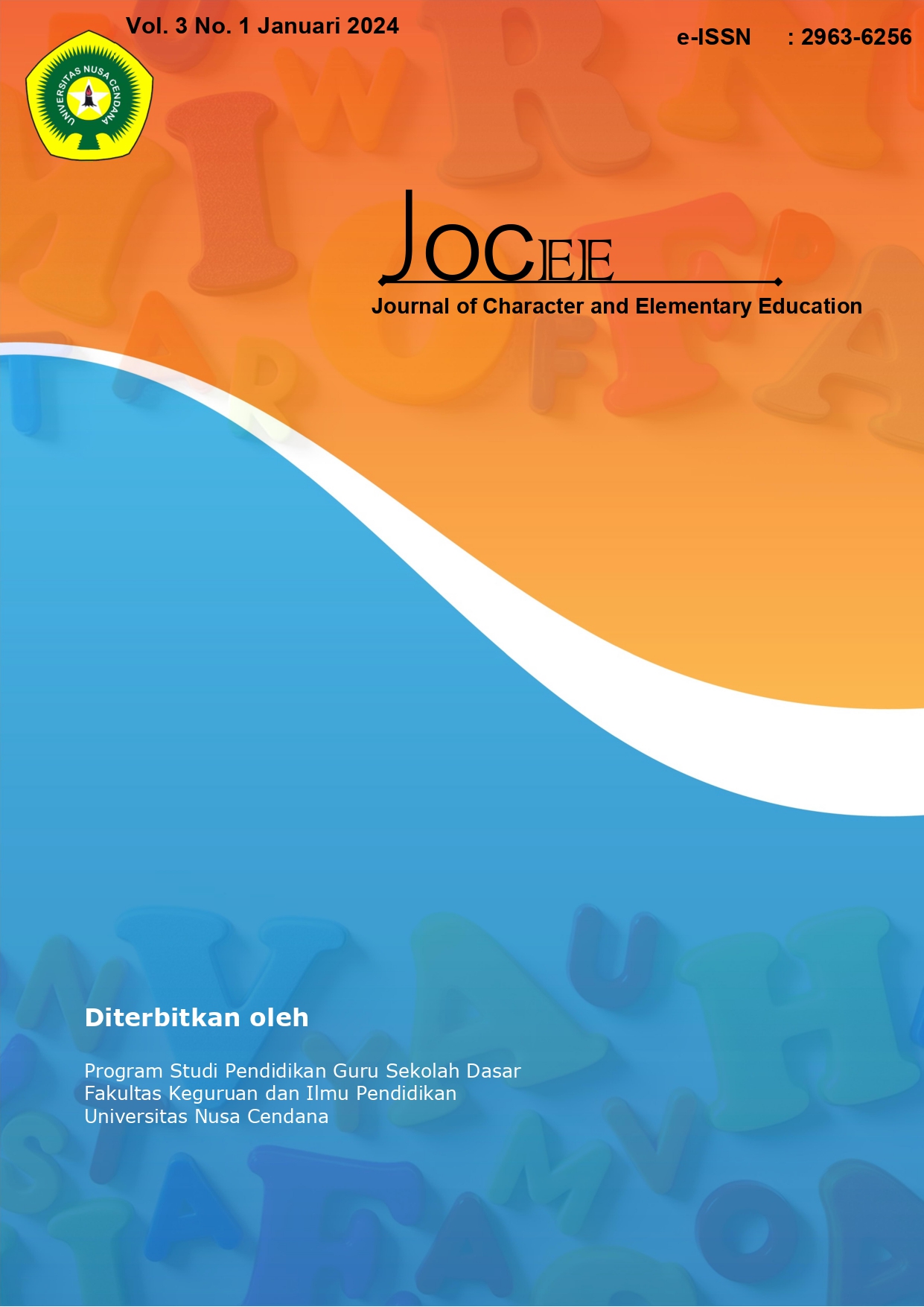Pembelajaran bahasa Inggris pada Program Studi Pendidikan Guru Sekolah Dasar: Tinjauan Filsafat Progresivisme
Abstract
The purpose of this study is to describe the implementation of English language teaching in the elementary school teacher education program within the framework of progressive education philosophy. Employing a qualitative descriptive research method, the study was conducted at a university in Yogyakarta, specifically within the Elementary School Teacher Education (S1 PGSD) program. The research subjects included English language lecturers and first-semester students. Data collection techniques involved participatory observation, semi-structured interviews, and document analysis. The findings reveal that English language teaching in the PGSD program, viewed through the lens of progressive education philosophy, can be observed from the aspects of educators, learners, teaching methods, and curriculum. Educators play a crucial role in creating learning that is according to student needs, active, democratic, and motivates learning environments. Learners are considered active participants in the learning process. The applied teaching methods include problem-solving and learning by doing. The curriculum is tailored to meet learners' needs, experience-based, and open in nature. The implications of this research underscore the importance for educators to design meaningful, contextually relevant, and contemporary learning experiences for students. It also encourages further exploration by other researchers into the implementation of English language teaching from alternative educational philosophy perspectives.
 DINAR MARTIA AZIZAH(1*)
DINAR MARTIA AZIZAH(1*)






